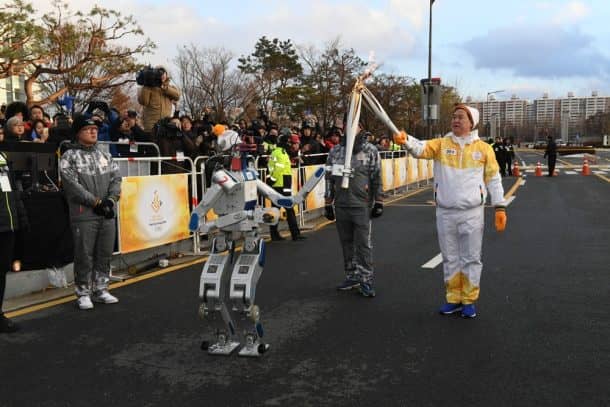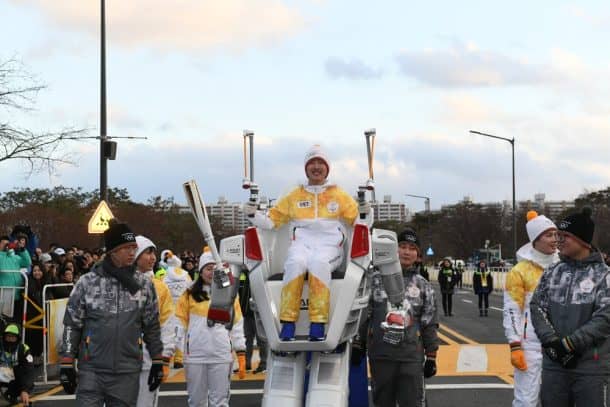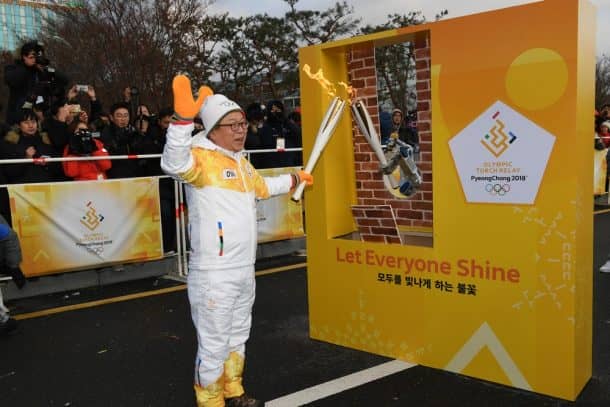The Winter Olympics are here and this time the venue is PyeongChang, South Korea. The games start on 9th February and will run for 2 weeks. With the Olympics approaching, the tradition of passing on the Olympic torch is here as well.
The Olympic torch passing ceremony this year was unorthodox, to say the least. It involved Hubo, a humanoid robot. Hubo was built by a team at the KAIST public research university. The torch passing ceremony was held on the KAIST campus as part of a three-day leg of the torch relay in Daejon.

The torch was carried by Dr. Dennis Hong, a professor from the University of California, Los Angeles. The Dr. arrived in an autonomous car and passed the flame along to Hubo. Hubo then walked 150 meters to a wall that it had to cut through in order to pass on the flame to its developer, Professor Oh Jun-ho. Professor Oh, in turn, passed along the flame to Jung Jae Lee, a winning team member of the Samsung Junior Software Cup, who rode in a special robotic chair with legs for propulsion called FX-2.

“Today’s special Olympic Torch Relay celebrating [information and communications technology (ICT)] was a fantastic display of innovation and creativity,” said PyeongChang Organizing Committee (POCOG) President LEE Hee-beom. “ICT is a very important part of the PyeongChang 2018 Winter Games as we aim to be the most connected and technologically advanced Games ever. Today was a chance for us to show the world some exciting technologies that will be showcased during the Games.”

This is a great honor for the robotics industry to be a part of the flame passing ceremony, a tradition going back years and years. This shows how much robotics has become a part of our daily life. But, is it a good idea to replace humans by robots in the world of sports as well?


